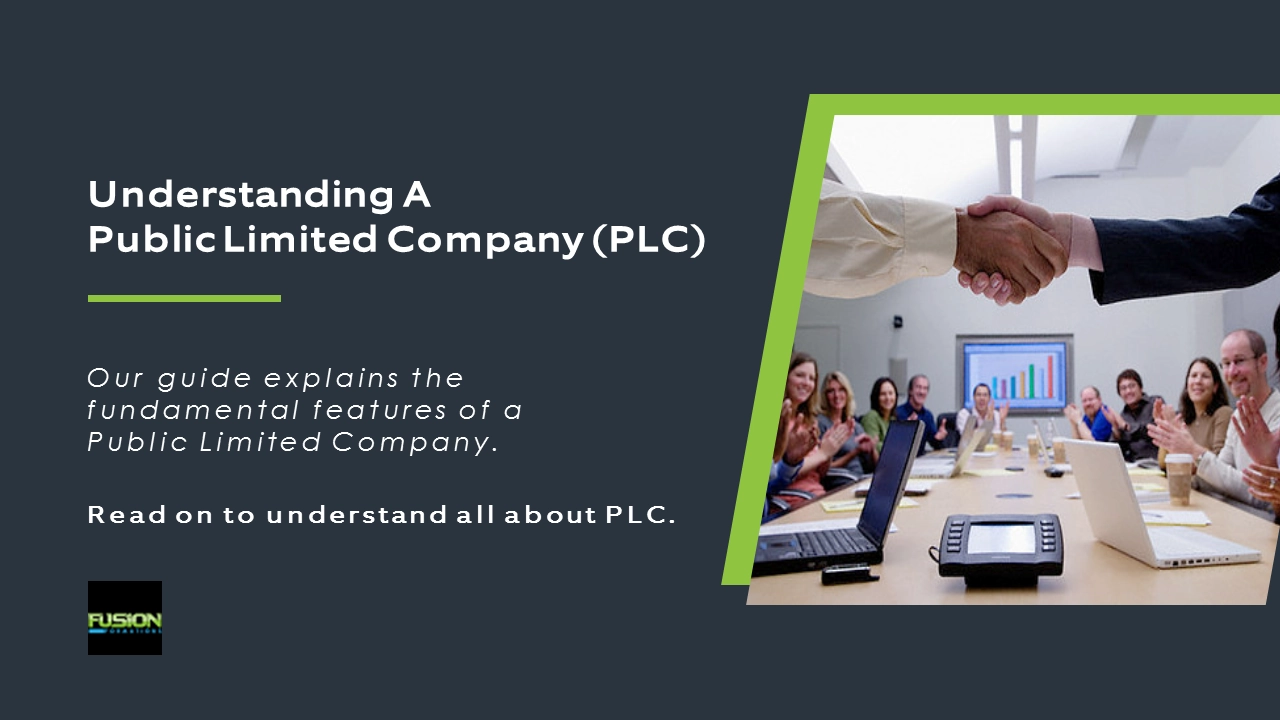
Understanding A Public Limited Company
 27 Jan, 2023
27 Jan, 2023
Most businesses choose to incorporate as a company limited by shares in contrast to setting up as a Sole Trader, partnership or company limited by guarantee. As the name suggests, a Public Limited Company (PLC) is one whose shares are offered for sale to the general public, and the shares may be listed on the stock exchange. While a PLC avails the same benefits as the other companies limited by shares, certain specific features provide it with the flexibility that the type of business requires. Let us have a look at the fundamentals of a PLC:
Basic Compliance Requirements for a Public Limited Company
A PLC must adhere to the following requirements under the law:
- It must have at least two directors.
- It is required to hold an Annual General Meeting (AGM) every year.
- The name of a Public Limited Company must end with the suffix ‘PLC’ or ‘Public Limited Company.
- It must have an allotted share capital with a nominal value of at least €25,000.
- 25% of such share capital must be fully paid up for the company to start its business or avail of the borrowing powers.
When going ahead with forming a PLC, it’s important to weigh the advantages and disadvantages of forming one.
What Are the Advantages of Forming a PLC?
- Ability to raise larger share capital – Since a PLC can sell its shares to the public, many significant investors can become shareholders. Therefore, more substantial amounts can be raised for investments.
- Availing expansion and growth opportunities – With the ease and availability of fund generation, a PLC can take up new projects, invest in capital expenditure, acquire other businesses, and access new markets.
- Widening the shareholder’s portfolio and spreading the risk and control – With the shares being bought by a large number of shareholders, a PLC can spread the risk associated with ownership.
- The term PLC adds prestige and status to the company – More people are expected to be aware of a public company, more so if it is listed on the stock market. This is organic publicity where more people will recognise the company and its products.
- Ease of transferability of shares – The shares in a PLC are easily transferable, especially where the company is listed on the stock exchange. In the absence of any terms restricting the transfer of shares, as in a private limited company, the shares can be easily transferred in situations such as the death of a shareholder.
What Are the Disadvantages of Forming a PLC?
Contrary to a private limited company, shares in a PLC can be bought by any public member, and it is harder to exercise control over the ownership. Furthermore, a PLC is subject to more statutory requirements about maintaining records and transparency, preparing financial statements, audits, holding AGMs, appointing a Company Secretary and directors etc. It also tends to incur higher costs associated with formation and listing requirements.
Need to know further details about a Public Limited Company? Contact our team of professionals today!
get a quick quote
Post Category
- Banking (1)
- Company Formation (3)
- Guides (6)
- Uncategorized (28)

